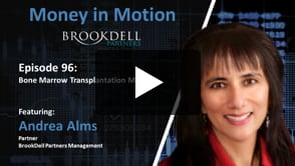Crypto Investment Dashboard:
Top Crypto Investment News, Listings, Member Posts, Crypto Investment Daily Indices and more!
Last week, the Supreme Court issued its decision in Polselli v. Internal Revenue Service. There, it ruled that the Internal Revenue Service is not required to give notice to third parties when issuing summons for bank records.
Remo Polselli owed the IRS over $2 million. Due to the size of the debt, his account was assigned to an IRS revenue officer who specializes in collecting large tax debts. While investigating, the revenue officer learned that the taxpayer has ownership interests in several businesses. He suspected that these businesses may have been used to hide assets including money that can be used to pay taxes.
The revenue officer sent summonses to Polselli’s wife and a law firm that has worked with Polselli for some time. The summons demanded documents concerning Polselli’s payments to the firm, such as invoices, billing notices, cancelled checks, wire transfers, credit documents, and other payment instruments. The firm did not produce the requested documents nor provided a representative to the revenue officer to discuss the summons.
The revenue officer next issued summonses to banks demanding copies of all bank statements relating to Polselli and the law firms he retained. He did not provide notice to any of the firms named in the summonses. But the banks unilaterally informed the firms about the summonses and soon after filed suit in federal court to quash them.
The Supreme Court granted certiorari in this case due to a circuit split. The Sixth Circuit, which decided Polselli’s case earlier, held that the law, in plain language, did not require the IRS to give notice to third parties when issuing summonses to aid tax collection efforts against a particular taxpayer. The Ninth Circuit, on the other hand, held that the notice exemption only applies when the taxpayer has a legal interest in the object of the summons. To decide whether a taxpayer maintains a sufficient legal interest in the object of the summons, the Ninth Circuit considers whether there was an employment, agency, or ownership relationship between the taxpayer and the third party.
The Court unanimously agreed with the Sixth Circuit. The plain language of Internal Revenue Code Section 7609(c)(2)(D)(i) states that notice of a summons to a third party is not required when it is issued to aid collections on a tax issued against a particular taxpayer. There is no language to suggest a legal interest requirement as required by the Ninth Circuit. The Court stated that Congress had an opportunity to include a legal interest requirement but deliberately decided not to by citing to another code section where the IRS is not allowed to reimburse costs of complying with a summons if the taxpayer had a “proprietary interest” in the documents requested.
Lastly, the Court addressed the petitioners’ privacy arguments. The Court acknowledged privacy concerns and potential for abuse by bad actors and the government conceded that its power is not limitless. But the Court declined to address these concerns in this case.
The Court addressed how summoning the law firm’s bank records can aid in collection. It stated that the law firm’s bank records can aid in collections because the statements can potentially show cancelled checks from Polselli’s various accounts.
And then the Court makes this curious statement:
As with the request [the revenue officer] issued to Abraham and Rose, even if the three bank summonses did not reveal bank accounts in which Mr. Polselli has a legal interest, they could lead to assets parked elsewhere that the IRS could collect to satisfy his $2 million liability.
The Court does not elaborate on where else the IRS could collect but it suggests that a law firm may find itself justifying its collected fee to an IRS revenue officer.
As a practical matter, giving notice to third parties about a summons could hamper the government’s collection efforts. The third party can tip off the taxpayer who can then move funds elsewhere. The proliferation of cryptocurrencies, the use of obscure crypto exchanges, as well as mixers can further complicate things.
Polselli’s case is an extreme and atypical tax collections case. Generally, the IRS gives adequate notice and procedural rights to taxpayers to allow them to resolve their back taxes. This includes access to Collection Due Process, Collections Appeal Program, or assistance from the IRS’s Taxpayer Advocate.
Some might be disturbed by the Court’s holding as the IRS will be able to access taxpayers’ bank records without them knowing. But they likely won’t notice. Because the IRS is not required to give notice.
Steven Chung is a tax attorney in Los Angeles, California. He helps people with basic tax planning and resolve tax disputes. He is also sympathetic to people with large student loans. He can be reached via email at [email protected]. Or you can connect with him on Twitter (@stevenchung) and connect with him on LinkedIn.
For more of the latest in litigation, regulation, deals and financial services trends, sign up for Finance Docket, a partnership between Breaking Media publications Above the Law and Dealbreaker.
Today's Crypto Investment Headlines:
Access Over 250K+ Industry Headlines, Posts and Updates
Join AlphaMaven
The Premier Alternative Investment
Research and Due Diligence Platform for Investors
Free Membership for Qualified Investors and Industry Participants
- Easily Customize Content to Match Your Investment Preferences
- Breaking News 24/7/365
- Daily Newsletter & Indices
- Alternative Investment Listings & LeaderBoards
- Industry Research, Due Diligence, Videos, Webinars, Events, Press Releases, Market Commentary, Newsletters, Fact Sheets, Presentations, Investment Mandates, Video PitchBooks & More!
- Company Directory
- Contact Directory
- Member Posts & Publications
- Alpha University Video Series to Expand Investor Knowledge
- AUM Accelerator Program (designed for investment managers)
- Over 450K+ Industry Headlines, Posts and Updates






